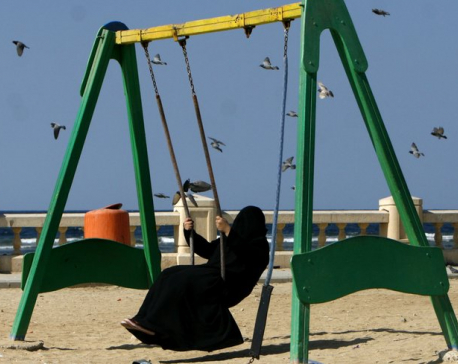
OR
Czech Communists enter gov't for first time since Soviet bloc
Published On: July 12, 2018 05:56 PM NPT By: Agencies

BOHEMIA, July 12: The Party has its strongest support base in rural regions and small towns and cities hit hard by the deindustrialization that occurred in the 1990s.
The Czech Communist Party of Bohemia and Moravia has signed a power-sharing agreement with Prime Minister Andrej Babis, meaning the party will hold a say in national political affairs for the first time since the fall of the Soviet bloc.
The agreement means that the Communist Party must support Babis in a confidence vote in parliament on Wednesday, a vote which is mandatory and which all governments must face to remain in power. Babis, however, has found it difficult to find support from other parties than the Social Democrats.
The Communist Party had initially declined to join Babis in a coalition. The Prime Minister is seen by the Communist Party as too friendly with NATO and the West, and the Party is more closely aligned with Czech President Milos Zeman, who is in favor of building alliances with Russia and China, yet it remains critical of both leaders.
But the Communists' new spot in Parliament is expected to boost the president's leverage. The party is resolutely anti-NATO, and will likely use its influence to push for reduced involvement in the alliance and to improve relations with Russia and China.
While Babis won over voters with his anti-establishment, anti-corruption image. He has pledged to raise wages and increase investments in crumbling infrastructure, but has also maintained an anti-immigration stance.
In spite of his electoral popularity, he has had difficulty building a government with existing parties. The Communists' support will likely save him in the upcoming confidence vote.
The Communist Party of Bohemia and Moravia maintains close relations with China, North Korea and Cuba, and has resisted the tendency of other European Communist Parties to move toward mainstream social democracy. Politically marginalized in the immediate years following the Soviet Union's fall, it has steadily increased its influence in recent years. It enjoyed some success in the 2012 regional elections, winning in the coal-producing region of Usti nad Labem, and was able to govern in coalition in several others.
The Party has its strongest support base in rural regions and small towns and cities hit hard by the deindustrialization that occurred in the 1990s.
You May Like This

Dalits enter temple for first time in 960 years
DOLPA, March 25: Members of the Dalit community recently took a big step, entering the renowned temple of Bala Tripura Sundari... Read More...

Barcelona looking to get past Chelsea for the first time since 2006
KATHMANDU, March 13: Barcelona hosts Chelsea at the Camp Nou on Wednesday looking to book a place in the quarterfinals... Read More...

Saudi women to enter stadiums for first time to watch soccer
RIYADH, Jan 12: Saudi women will be allowed for the first time to enter a sports stadium to watch a... Read More...










Just In
- NRB introduces cautiously flexible measures to address ongoing slowdown in various economic sectors
- Forced Covid-19 cremations: is it too late for redemption?
- NRB to provide collateral-free loans to foreign employment seekers
- NEB to publish Grade 12 results next week
- Body handover begins; Relatives remain dissatisfied with insurance, compensation amount
- NC defers its plan to join Koshi govt
- NRB to review microfinance loan interest rate
- 134 dead in floods and landslides since onset of monsoon this year








Leave A Comment